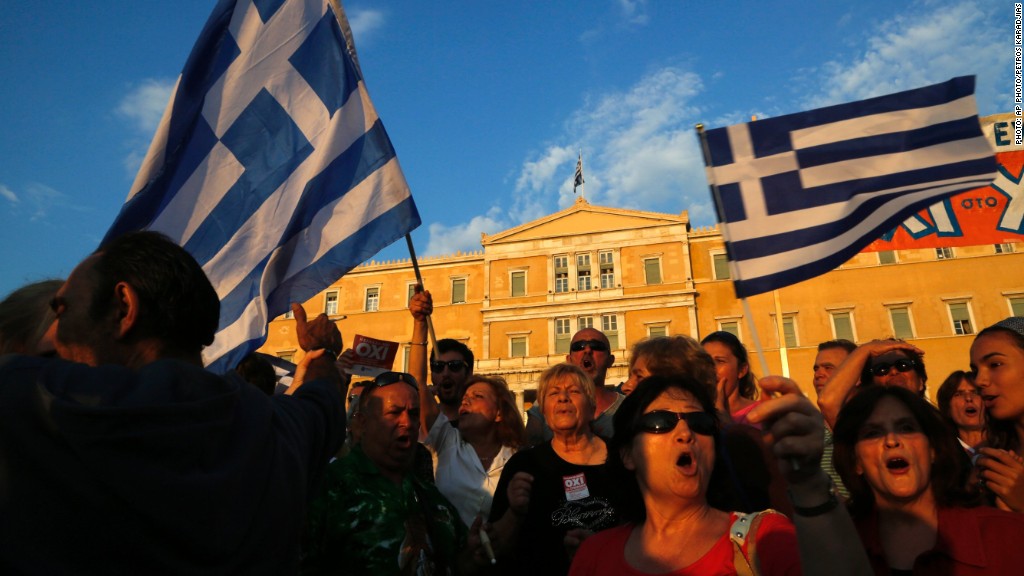
Would you swap jobs with this man? Euclid Tsakalotos has been trying for months to save Greece from disaster -- leading his country's negotiations with its creditors.
Those talks collapsed in acrimony and confusion this week. Greece's banks have been shuttered, and the country is now on the brink of going bust.
Yet Tsakalotos hasn't given up yet. He believes a controversial referendum his boss has called for Sunday could provide a way out of the crisis.
"There's always a point of democracy," he told CNN's Christiane Amanpour.
"If Europe decides that they cannot live with a government that has slightly different priorities -- social priorities, has slightly different economic priorities -- from the mainstream, then that closes the door on democracy, and it opens the door for very nasty right-wing politics."
He was speaking a day after a particularly confusing series of events in the Greek saga, which has already seen its fair share of obfuscation.
Related: The Greek crisis...in 2 minutes
Greek Prime Minister Alexis Tsipras appeared to accept many of his creditors' austerity demands early Wednesday, only to go before the Greek people hours later and tell them to vote against that very package on Sunday. And the deal they'll be voting on isn't even on the table anymore.
Nonetheless, Tsakalotos said that a "no" vote against the latest bailout program would "give us the strength to fight for a deal that will be both sustainable and a fair compromise."
Rather than opening the door to new talks, a "no" vote would slam it shut, said Jeroen Dijsselbloem, who chairs the Eurogroup of finance ministers.
"I think there would not only be no basis for a new program, but it would be very much the question whether there would be a basis for Greece in the euro zone," he said.
If that door is closed, Tsakalotos said, Greeks and Europeans would be forced to conclude that "this Europe is a Europe where you can vote for whatever you want, but you always get the same policies."
Related: Europe's central banks prepare for the worst
Echoing previous statements from his government, he made clear that if Greeks voted "yes," his government would face an uncertain future.
"I think if there's a 'yes' vote, the arguments and the positions of the Greek government will have been defeated."
"I'm not going to say and speculate the political mechanics of it, but obviously there will have to be an implementation of the deal, but it's not a deal that this Greek government in this form would be able to pass."
Finance Minister Yanis Varoufakis told CNN earlier that he would resign if the Greek people ignored the government's plea to reject the bailout offer.
Tsakalotos lashed out at the International Monetary Fund, European Union and European Central Bank, accusing them of infighting and imposing their prescription without any flexibility.
"The two giants [the IMF and Europe] have been fighting, and the Greek antelope at the bottom has to accept, on the table, not much on debt [restructuring] and very harsh reforms. That can't be right."
"And it's not just an issue that it can't be right ethically, it won't work economically."


